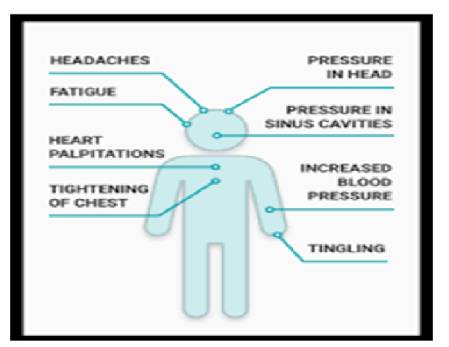Are you the kind of person who finds it so difficult to keep your cool? Or do you know someone around whom you need to act like walking on eggshells?
Read on to see if you or someone you love might have an anger management issue.
Why Do We Get Angry?
Anger is a survival strategy that helps us deal with those people and situations that seem to be taking advantage of us. Hence, anger as an emotion is normal when it is expressed in proportion to the situation at hand.
Do I have an Anger Issue?
Any person who has an anger issue acts and talks in anger in a way that is completely disproportionate to the situation. More often than not, the anger that comes out is directed at a person or object that is not a direct cause of their overwhelming discomfort.
Your loved one throws and breaks things in an argument which does not warrant an explosive outburst of anger.
You will often feel that you are trying your level best not to annoy this person who is perpetually on the verge of a temper tantrum. This can make your life miserable
What are types of anger?
Explicit Aggression: This is the type of anger that is understood in the conventional sense of the word. An explicitly aggressive person often talks or acts in a way that is harmful to the people around him/ her as well as to the person himself/herself.
Implicit Aggression: Often called as self-inflicted anger, implicit aggression often makes a person direct anger inward toward their own self. This includes self-harm and negative self-talk
Passive Anger: This anger is a type that is often disguised as jibes and sarcasm, however not meant to be taken funnily. It also manifests as a person cutting off people or avoiding social situations to indirectly express their resentment. More often the angry person or those around him often fail to see this manifestation of anger
Note:
Any form of anger that is out of proportion to the concerned situation, is often not under the control of an angry person and causes them significant distress. Hence, it is often not correct to believe that the person is choosing to hurt those around them even though the impact caused is undeniable. However, even if mental illness is a valid reason to justify anger to facilitate oneself to approach treatment, no form of physical or verbal aggression and the impact caused by them on others is justifiable.
What is the cause of an Anger Issue?
Anger issues are often responses to overwhelming life events such as loss of a loved one or a response to stress. More often than not, these anger issues that have a tangible reason resolve on their own.
Sometimes, anger is a symptom, an outward indication, of an underlying mental health condition. This includes:
- Anxiety disorders like OCD
- Depression
- Bipolar Disorder
- Alcoholism
In adolescents, anger can be a symptom of certain lifelong conditions like:
- Oppositional Defiant Disorder
- Intermittent Explosive Disorder
When Should I worry about anger issues?
Anger issues that seem abnormal to the situation so as to cause significant distress to you and those around you need to be taken seriously. This is because anger is not only the symptom of an underlying condition, it can also cause significant physical distress.
Physical Distress Caused by Anger

How to Treat Anger issues?
Anger issues are often a distress to the person himself/ herself, that they decide to seek help. It is advised that if you need help, you talk to a mental health professional. Usually, psychotherapy, hypnotherapy and other relaxation techniques like mindfulness and/or meditation are used to alleviate suffering. If an underlying mental health condition is suspected, medications may be used in combination with the above mentioned non-pharmaceutical ways of dealing with anger issues.
Conclusion:
An angry person causes significant physical and mental distress to themselves and those around them. Therefore, it is important for us to deal with our anger or our loved ones’ anger that looks abnormal and is almost always present. Psychiatric and/or psychotherapeutic treatments help a person with anger issues to lead a normal or almost normal life without any distress. It is also notable that any anger issue that is resolved leads a person to lead a fuller life and have healthy relationships.
